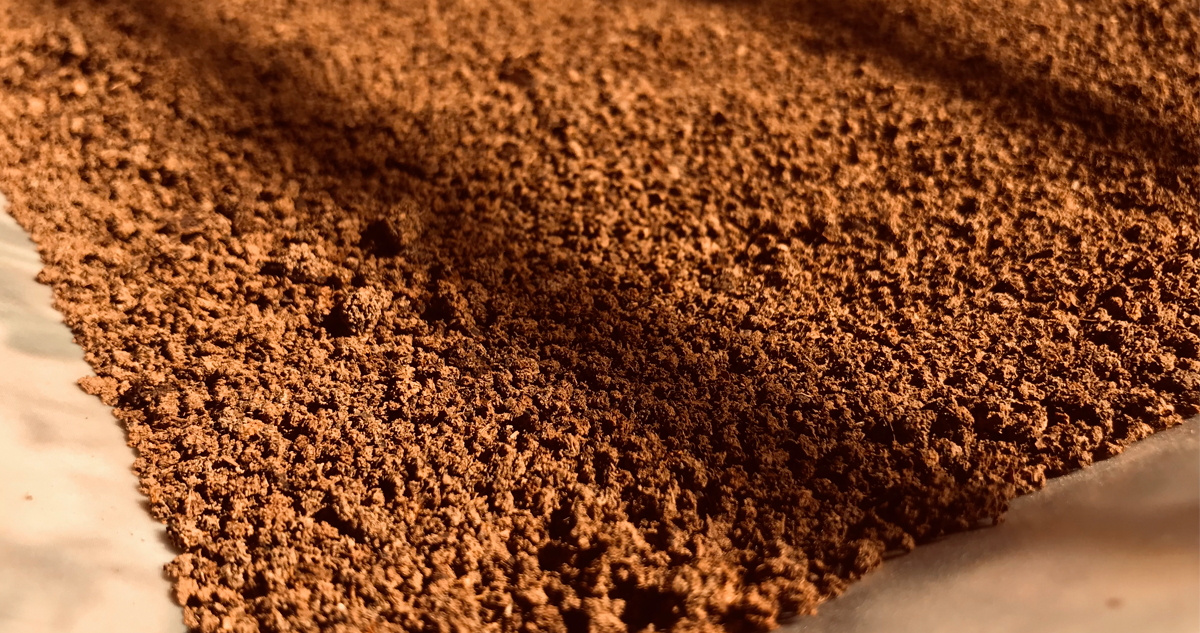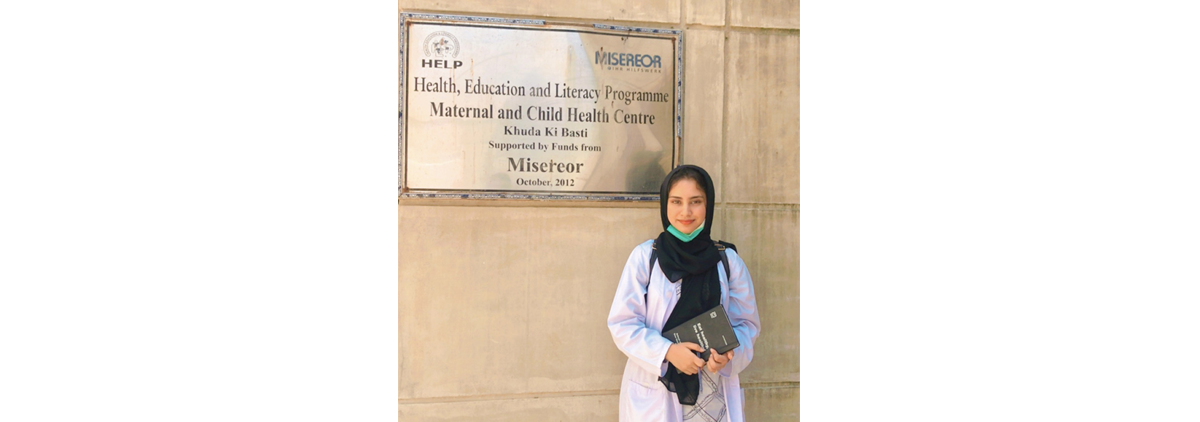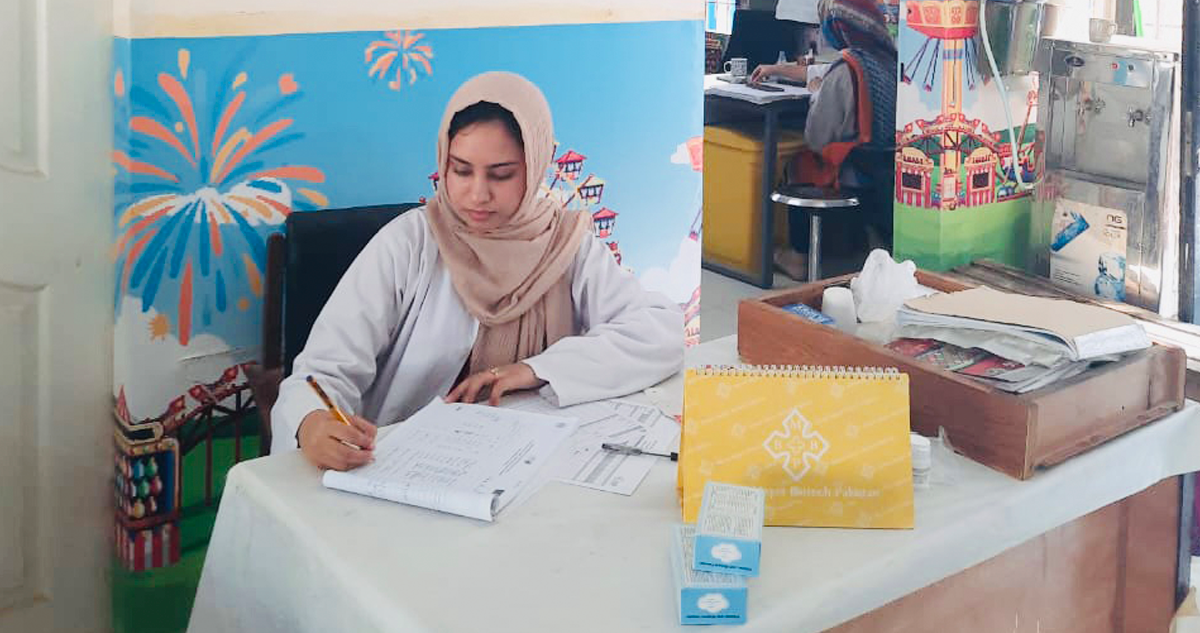Zehra Batool is a January 2023 graduate of the PepsiCo-Amal Career Prep Fellowship, supported by the PepsiCo Foundation for empowering young students with soft skills to kickstart their professional careers. She was a member of the Fellowship in Batch
264 and recently graduated from the program, earning the honor of one of the most dedicated and bright fellows in her batch. We recently caught up with her to learn more about her incredible journey and how the PepsiCo-Amal Career Prep Fellowship
has helped her change her life – from failure to helping flowers grow with tea waste and then helping malnourished children and women!
1. Can you share a little bit about your personal/family background? Your siblings and family life?
My mother raised me after my father’s death. I have had an incredibly happy childhood all thanks to my mother who nurtured me and taught me everything I needed to succeed in life.
2. The biggest challenge you faced in your life/educational career?
I failed my MDCAT exam in Nov 2018 and I was devastated.
3. How did you overcome this challenge?
I picked myself up and started looking at other programs related to the medical field. I was lucky to get admission in BS Nutrition at Dow University of Health and Science.
4. How did you hear about PepsiCo-Amal Career-Prep Fellowship?
A few of my seniors in university did this fellowship and were excelling in their careers due to the skill set they acquired in this fellowship. It was very inspiring!
5. What motivated you to join the Fellowship?
I wanted to acquire a set of interpersonal skills after my degree so it would help me excel in my career in an increasingly competitive job market.
6. How was your experience of the Amal Career-Prep Fellowship?
The Fellowship helped me gain a firm grasp over the processes of work-place culture and the skills required to stand out and exceed expectations. I couldn’t have achieved any of this as a university student.
7. Your favorite thing about the Fellowship?
Guidance from my Program Manager Miss Afreen Khan and my Program Associate Sir Hasan Raza. I also loved the engaging online courses that had multimedia content, quizzes, and discussions.
8. What was your Mega Project?
It was an entrepreneurial and sustainability project named BioTeagradable, an environmentally friendly and organic fertilizer made from the tea waste for flowering plants.
The excessive use of chemical fertilizer is contributing to increased soil and water contamination, which has significant environmental consequences. Eco-friendly fertilizers are the answer and tealeaves are one of the most accessible items in Pakistan.
Tea waste is a rich source of phosphorus, calcium, and potassium. The tannic acid in tea is also great for flowering plants that require low pH to grow! This is why we came up with the idea of making compost for flowering plants from tea waste.

Used tea leaves, an easily available "waste product" in Pakistan, as pH balanced fertilizer to grow flowering plants.
9. Who came up with the basic idea of the Mega Project?
Daniyal Kasmani (one of my Amal group members) who is also a tea lover, observed excessive tea waste being discarded at every other tea stall of Karachi. On the other hand, I am obsessed with gardening. The negative impacts of chemical fertilizers on
the plants and on the environment got me thinking.
10. Who were your group members for the Mega Project? How did you all work?
Daniyal engaged tea stall owners, Muhammad Hammad designed packaging, Mustafa Baloch and Sarfraz Ali collected tea waste, and Zahra Haider was in charge of our social media handling and strategy. I oversaw project management.
11. What was the scope and plan for your Mega Project?
Our target was to produce 20 packets of organic fertilizer by collecting tea waste from different tea stalls in Karachi, and to sell 15 packets of BioTeagradable in the first month of production.
After collection of used tea leaves from different stalls, we added necessary mineral powders to it to increase its effectiveness and tested it. In our Marketing and Sales phase, we tried to ensure sustainability and packaged our product in a biodegradable
paper bag.

Bioteagradable organic fertilizer in its environment friendly packaging.
12. Did you manage to achieve all your targets for your Mega Project?
We surpassed our targets. We sold 25 units in the first month and have 50 preorders.
13. Your favorite Amal Fellowship memory?
I was unsure about my leadership skills as all the Fellows in my Mega Project group were the people I had least interacted with before. I still tried my best and Sir Hasan told me that I am doing great as the leader of my Mega Project. The validation
was all I needed and that turned out to be my most memorable moment.
14. How did your internship with Accelerated Action Plan (AAP) come about? Did Amal help you secure it?
At Amal, we learnt about interview techniques and proper resume crafting which helped me secure my internship at AAP.

Zehra at one of her duty stations in Karachi’s underserved "Khuda Ki Basti" community.
15. What was your routine and work with AAP?
During my internship at AAP, I was placed at different underserved in Karachi. I used to spend 30 hours per week on my internship where I identified malnourished children and women and counselled them nutrition, the use of ready to use therapeutic food
and micronutrient powder, breastfeeding and complementary feeding for children of different age groups.

Zehra credits her training in the PepsiCo-Amal Career Prep Fellowship
for her success as a Public Health Nutritionist.
16. What are your biggest achievements at AAP?
I have learned a lot from IDP camps and working with community health workers to acknowledge underlying health and food security issues in our community. It is unlike any corporate job, and it created a feeling of empathy in me. Interaction with public
health experts has given me more experience.
17. What are your plans regarding work? Would you wish to continue your learnings from the Mega Project and the AAP internship?
I plan to work as a Public Health Nutritionist in a multinational company and my Amal team and I are motivated to scale Bioteagradeable to meet market demands. My Mega Project and internship at AAP both consisted of collaborating with people coming from
manifold cultural and educational backgrounds. Leading a diversified team consisting of people with different mindsets is a skill that is transferable into any other setting. Truly a lesson for life!

From entrepreneurship to public health initiatives, Zehra is doing it all.
18. How do you think PepsiCo’s support for Amal has benefited students?
With PepsiCo’s support, Amal is providing concessions to deserving students belonging to less privileged backgrounds which helps them compete with students at elite universities. They are given a chance to acquire skills and land jobs at reputable
organizations that may change their lives.
19. What is the one message you have for PepsiCo and Amal?
Amal, powered by PepsiCo, has become a platform where young professionals are uplifted and empowered to achieve their ambitions. This noble mission of making a positive impact on the lives of young people is highly commendable. This effort has already
had a positive impact on close to 10,000 students, and I believe that PepsiCo's collaboration with Amal has the potential to impact many more lives like it did mine.